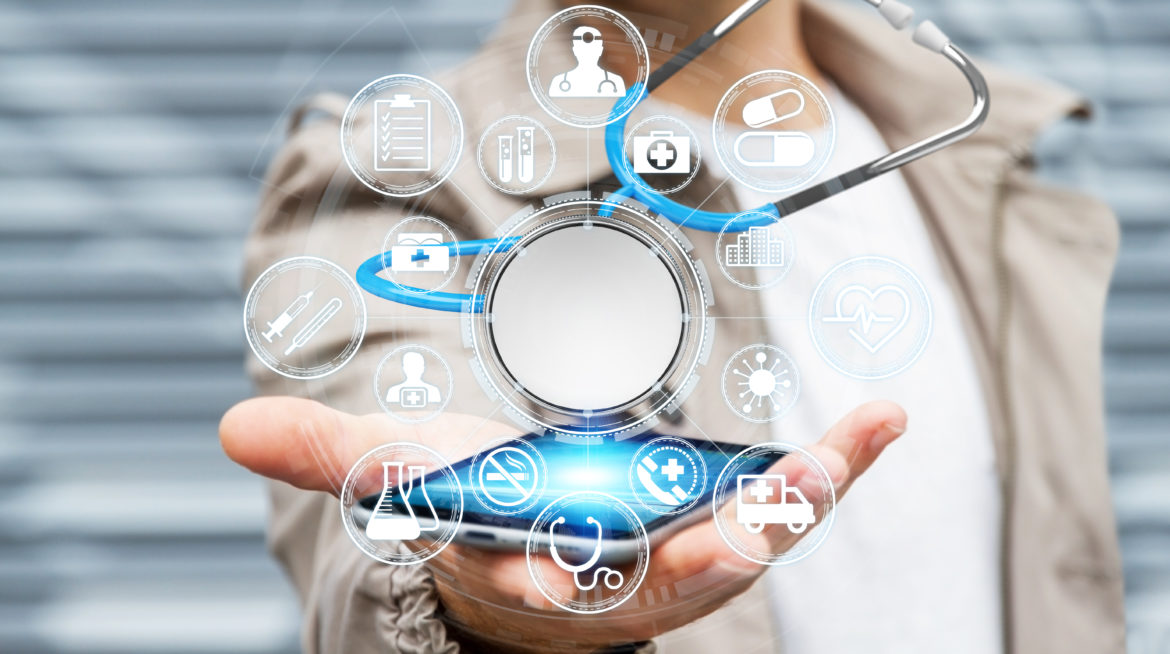The Faculty of ICT has long championed the digitisation of health, both by conducting and supporting research, as well as by teaching students the latest developments.
This past century has seen humankind take huge leaps in the area of health. Spurred by better tools in science, technology, and data collection, we now have a wider variety of drugs to combat disease, more precise tools to help us perform complex surgeries, and a better understanding of how to diagnose and treat many more illnesses. This is all set to continue, but the future of healthcare will be based on a more personalised approach, particularly thanks to the rise of Digital Health.
For those who are new to the term, Digital Health is the collective name given to health functions that make use of software, sensors, computer platforms, Artificial Intelligence, and the Internet of Things. It’s, of course, a relatively new area that has come to the fore over this past decade or so, but the benefits of using such methods in healthcare are set to be huge.
Currently, for example, people’s health information is fragmented, with parts of it being on paper in large filing stores at Mater Dei Hospital or health centres, in data repositories at the general hospital, and in computer systems at private doctors’ clinics. That may not seem like a big deal until you realise that a piece of valuable information for a medic treating you has been missed, or when, in the event of an emergency, doctors or paramedics may not know what medicines you are on.
It’s with this in mind that we at the Faculty of ICT are working on a project entitled ‘Data Visualisation Using BI for Digital Health’, which aims to create a centralised system where information from the many healthcare points a person visits can be stored and retrieved more easily by authorised professionals. As mentioned above, this could save lives in an emergency situation, but that is just the tip of the iceberg. Such a system will also save healthcare professionals a lot of time, which they can spend with patients or researching; help hospitals go paperless and avoid mistakes; and even play a crucial role in transitioning our system from being one that offers reactionary treatment to one that is based on proactive prevention.
Data in Digital Health is king. It is only by collecting it, compiling it, understanding it, and using it that these processes can work. And the uses can be endless. Indeed, another project we are concurrently working on – called ‘Intelligent Aggregation and Adaptive Visualisation’ project – is using an oncology-related case study in order for us to understand how the data gathered throughout the different steps in a patient’s healthcare pathway can help improve doctor-patient relations, lead to faster diagnoses, and make the system as easy and as patient-centric as possible.
Digital Health, however, doesn’t just help us make what’s already there better, but also allows us to create whole new systems that can revolutionise the way things are done. This can be seen in our Pervasive Electronic Monitoring (PEM) project*, which has seen our Deputy Dean, staff from Saint Vincent de Paul, volunteers, and numerous students join forces to create a system that uses on-body and environmental sensors to monitor patients when caregivers can’t.
To do this, masses of data have had to be collected to teach the system how to tell if a patient had fallen down, was walking aimlessly or with purpose, and if they were asleep, among a whole host of other actions. Once all that is done, even more data will be needed every second to monitor patients, as computer systems need this in order to inform caregivers of any issues in real time.
It’s a mammoth task that has been years in the making and which will take years to be completed, but this could have a truly life-changing impact for dementia patients, who on top of being able to lead more independent lives in care homes, may even be able to live in their homes and be part of the community for longer.
Indeed, that is the beauty of Digital Health: it gives us a way to make a difference. But, of course, all these things also raise ethical questions, such as whether our research respects the dignity of those who will use it, and whether it will be accessible to everyone or if it will be only for the privileged few.
The great thing about Digital Health is that it reduces inequality in health by making once expensive scenarios affordable: just think about the PEM project and how this will help families who can’t afford a full-time caregiver. Yet, with regards to dignity, the buck stops with us, which is why we are adamant that any research conducted on our watch respects its users’ rights, humanity, dignity, and privacy.
That is an immovable pillar in all the work we do, and in all the degrees we teach. It’s also an integral part of the MSc in Digital Health, which we’ve just launched on the International Year of Medical Education. This Master’s degree, which has been created together with the Department of Health Sciences, will be an interdisciplinary postgraduate course that gives our young researchers the knowledge, tools, and ethics needed to help in the creation of new software and hardware to ensure that the rise of digitisation in health continues unabated, and that Malta continues to be at the centre of this revolution that will define our age and those of future generations.
As a Faculty, we look forward to welcoming many more students to the fold; students who wish to explore the areas that form part of Digital Health, and who wish to create something new, find a solution to a problem, or help make someone’s life that much more comfortable.
Finally, we also welcome everyone else to explore all the advancements happening in healthcare thanks to Digital Health. There’s a bright new world unfolding here, and we’re proud to be carrying the baton for Malta.

*The PEM project is funded by ISL Limited through RIDT

